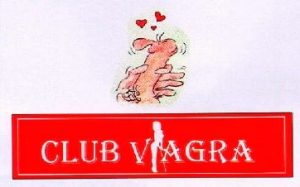The wordings of Article 7(1)(f) EUTMR (for ease of reference: ‘trade marks which is contry to public policy or to accepted principles of moral’) and the Danish equivalent – Section 14(1)(1) of the Danish Consolidate Trade Marks Act – are very broad and allow much room for interpretation. A judicious application of this provision necessarily entails balancing the right of traders to freely employ words and images in the signs they wish to register as trademarks against the right of the public not to be confronted with disturbing, abusive, insulting and even threatening trademarks.
The balancing act should preferably result in trademark offices not refusing to register a trademark which is only likely to offend a small minority of exceptionally puritanical citizens. Similarly, a trademark should not be granted protection simply because it would not offend the equally small minority at the other end of the spectrum who find even gross obscenity acceptable. Some people are easily offended; others are totally unshockable; and many Scandinavians fall into the latter category. The trademark offices must assess the mark by reference to the standards and values of ordinary citizens who fall between those two extremes.
The Danish Patent and Trademark Office (DKPTO) takes the approach that it has not been established to be the defender of a strict moral. Thus, very few applications are rejected under the Danish equivalent of Article 7(1)(f) EUTMR. The best way to become acquainted with the Danish standard of morality is to have a closer look at the marks that have been refused and the marks that have been accepted.
The following few marks are examples of ‘recent’ decisions from DKPTO.
It is necessary to consider the context in which the mark is likely to be encountered, assuming normal use of the mark in connection with the goods and services covered by the application. If the goods are of a type that is sold only in sex shops, a more relaxed attitude can be expected. If the goods are likely to be advertised on prime-time television or worn in the street with the trademark prominently displayed, a stricter approach may be justified.
In deciding whether a trademark should be barred from registration on the grounds of public policy or morality DKPTO applies the standards of a reasonable person with normal levels of sensitivity and tolerance. It can be extremely difficult to ascertain when a sign crosses the boundary from being merely irreverent or distasteful to being seriously abusive and likely to cause offence. Signs which contain slightly rude words or mild sexual insinuations might not be refused, but signs which contain manifestly offensive language or depict gross obscenity have no place on the register.
Article 7(1)(f) EUTMR is an European provision and has to be interpreted on the basis of a common European standard. In this connection, it is important for Scandinavians to note that public morality is less strict in Scandinavia than in more religious Member States. In general, Scandinavians have a more rough sense of humour and are less likely to be offended by trademarks which are perceived as offensive by people of other nationalities. It is advisable to tread carefully since it is difficult to know what will offend people of other nationalities.
_____________________________
To make sure you do not miss out on regular updates from the Kluwer Trademark Blog, please subscribe here.




